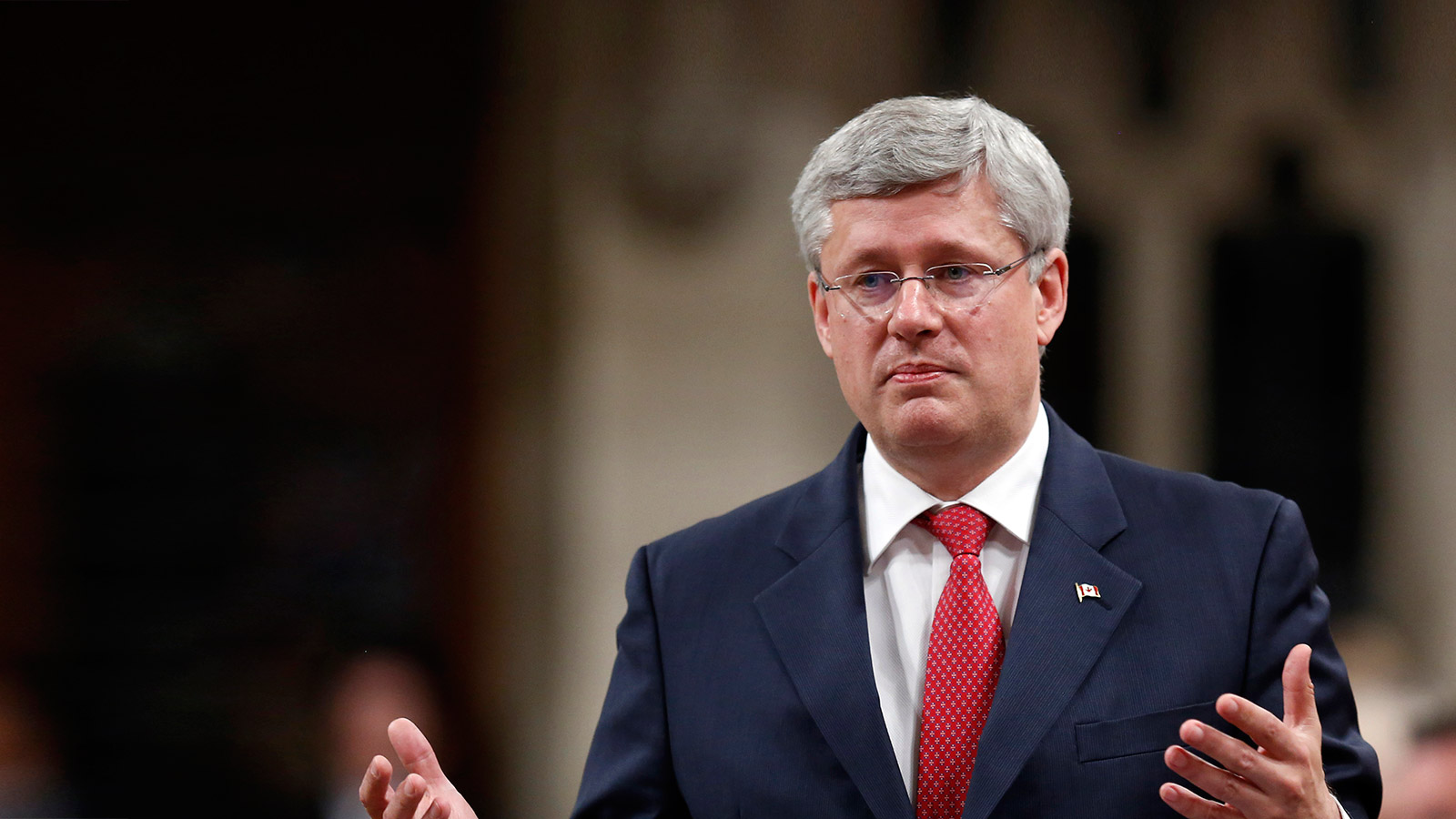The House of Commons heads back to the real world
These have been zany days for the geeks on the hill. But debate on the role of parliament risks masking the campaign-season good stuff
Canada’s Prime Minister Stephen Harper speaks during Question Period in the House of Commons on Parliament Hill in Ottawa September 30, 2014. CREDIT: Chris Wattie/Reuters
Share

It’s been the kind of week in Ottawa where even trying to explain what’s been going on is a little embarrassing. In other words, the House of Commons is sitting again. We had such a peaceful summer. It’s over.
Thomas Mulcair, the NDP leader, got up in question period and asked how long Canadian troops might be involved in military action in Iraq. Paul Calandra, the Prime Minister’s parliamentary secretary, stood to accuse the NDP of hating Israel. Well, I suppose it was more like he was musing about whether the NDP hates Israel. Anyway, what he wasn’t doing was answering Mulcair’s question.
Mulcair asked again. Calandra slandered the NDP again, in whole or in part. Mulcair got snippy at the Speaker, Andrew Scheer, for letting Calandra act the buffoon. The Speaker cut Mulcair off before he could ask any more questions.
Well, this could hardly have gone better. Le tout Parliament Hill was in ecstasy. In record time, the National Capital hivemind had been permitted by the fates to abandon the sort of question that makes us nervous—What is actually happening out there in the real world of things and events?—and begun swarming around the kind of question we like: What is the proper role of the Speaker in reversing the Lamentable Decline of Parliamentary Democracy?
The real world of things and events was quickly forgotten, with all its imponderables. The number of articles and news-show commentaries on the general theme of “Hey, wait a minute—how long will that military action in Iraq last, anyway?” was tiny in comparison to the number of articles and commentaries on the role of the Speaker. We know what we’re good at in Ottawa, and the real world ain’t it. When, at the end of the week, Calandra wept on the floor of the House of Commons for being such a doofus in the first place, it was like icing on a cake made of icing.
The capital’s peculiar rituals have their own script, which everyone follows with some rigour. Hand-wringing about Declining Parliamentary Democracy is always followed by the compulsory predictions of trouble for the government, including a Lawrence Martin column asking whether the Prime Minister is gone yet. One day both this Prime Minister and his government will be gone, and the people who have predicted it 16 times will have been right on the 16th, and we will never hear the end of it.
Meanwhile out in the real world of things and events, things were happening, and they were mostly the sort of thing Stephen Harper will want to talk about in an election campaign. First, that military business in Iraq. It’s a deadly mess, and we have all learned several times since 2001 that very few military interventions end without a new mess. But Harper has decided what sort of threat Islamic State represents, and he has picked a side. It is the same side the French, British and Americans have already picked. The U.S. President’s judgment is valued more highly by more Canadians than George W. Bush’s was the last time Canada was asked to participate in a shooting war in Iraq. The contribution Canada would make is smaller.
In all of these ways, then, Harper is on safer ground than Jean Chrétien would have been if he had sent Canadian soldiers into combat in Iraq in 2003. As Mulcair has attempted to keep the debate on procedural ground—is Parliament consulted properly? What are the timetables? Where is the correspondence?—Harper has preferred principles. “There is no reluctance here,” Harper said. “This phenomenon”—Islamic State—“is a direct threat to the security of this country. When we recognize there is a threat like this . . . we do our part. We do not stand on the sidelines and watch.”
Harper said that in a news conference with European Union leaders announcing the end of negotiations toward a Canada-EU trade deal. They’ve announced it a couple of times before, which is embarrassing. But each time they announce it, it’s closer to being a real thing. Here too, the very existence of a trade deal with Europe is a challenge to the opposition parties. Harper has said the NDP favours trade in general and tends to oppose it in practice. Mulcair sought to immunize his party against that criticism by announcing support for free trade between Canada and South Korea, but he still has to decide whether he supports the bigger, more politically sensitive deal with Europe. If he supports it, he will further alienate an NDP base that isn’t always sure Mulcair is their kind of New Democrat. If he opposes it, he will confirm Harper’s belief that New Democrats aren’t free traders.
The stuff we all spent a week ignoring, in other words, is the sort of stuff that’s often at the heart of a federal election campaign. Does Canada reach outward or not? Does it stand with its allies or behind them? The stuff that excited Ottawa all week will be replaced with something else that excites Ottawa next week. In the end, the questions most of us ignored will be the ones that carry weight. At various times this year I have wondered whether Harper would get out of politics while the getting was good. Increasingly, I think he likes his chances. He’s staying put.